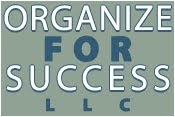- Break projects into bite-sized actions. No entire project can be completed at one time; instead, list them as tasks that can be completed step-by-step, checking each item off one by one from a daily, weekly, monthly or annual to-do list. When creating this list, start each item with a verb, and make sure it is broken down into the smallest increment of what is to be done so it's more feasible.
- Gain clarity on what's unclear. Vague priorities, unclear directions, lack of knowing how to do something and being unfamiliar with the order in which to move through the steps necessary for getting tasks done are all problematic. Ask questions to better understand the objective, your team's priorities, how to accomplish each step necessary and why it must get done; if you don't know how to do something, ask someone who does know it for assistance. Never be afraid to ask those questions, realizing that the result to not asking is far worse than any answer you could receive.
- Set deadlines for each specific task. I have yet to find a calendar that includes "someday"; therefore, when we say "I'll get to that someday" or "I'll work on that when I get some free time", we are usually setting ourselves up for failure. Instead, assign deadlines for each of the smaller, bite-sized actions within the projects to be completed, making it possible to block off time on your calendar for when each task will be completed. Every "what" assigned a "when" is more likely to get accomplished, leading to more wins.
- Quiet any perfectionist tendencies. One of my favorite mantras reminds me that, "Done can be better than perfect so focus on good enough." Perfectionism is frequently the cause of procrastination; subsequently, focusing on the desired results can empower us to get past waiting for "the right time"and get us to stop continuing our work on projects for perpetuity in the effort of achieving perfection. Stop comparing yourself with others; achieving your desired results usually has little to do with how the finished product compares with what others do or have done. Instead, focus on getting things done to the best of your ability, not necessarily in a perfect way.
- Utilize a timer. Maybe you prefer time-blocking with the Pomodoro Technique or the Rule of 52 and 17, but, regardless, a timer can be your most powerful tool for getting things done. Working in a focused manner for a short stretch can boost both efficiency and total output, particularly when you shutdown all potential distractions during that time... Anyone can do an undesirable action for a short spurt, and it's amazing how much more can get done in a shorter amount of time than if you think you have longer to finish. Most importantly, when the timer goes off, you may find that you are engrossed in the task and will keep at it, getting even more accomplished, or you had been distracted and need to refocus for another timed session.
- Implement music's motivating abilities. Some people are energized by fast-paced music while others get more focused via smoother tunes, both leading to greater productivity. Pick enough tunes in the tone you prefer to fill your set block of time, group them together as your productivity playlist and use that playlist to motivate desired output.
- Spend time with folks getting things done. For years, I've heard that you become like the people with whom you spend time. If you prioritize spending time with people in your life who are considered hard workers or go-getters, their energy will rub off on you and motivate similar productivity in yourself. As activity breeds activity, time with productive peers can inspire greater productivity within ourselves, even if it's across a computer screen.
Which tasks have you been pushing forward? Are they actually projects that need to be broken down into individual action steps? Or are they tasks that need to be delegated or deleted? How can you make a little movement forward today?


No comments:
Post a Comment